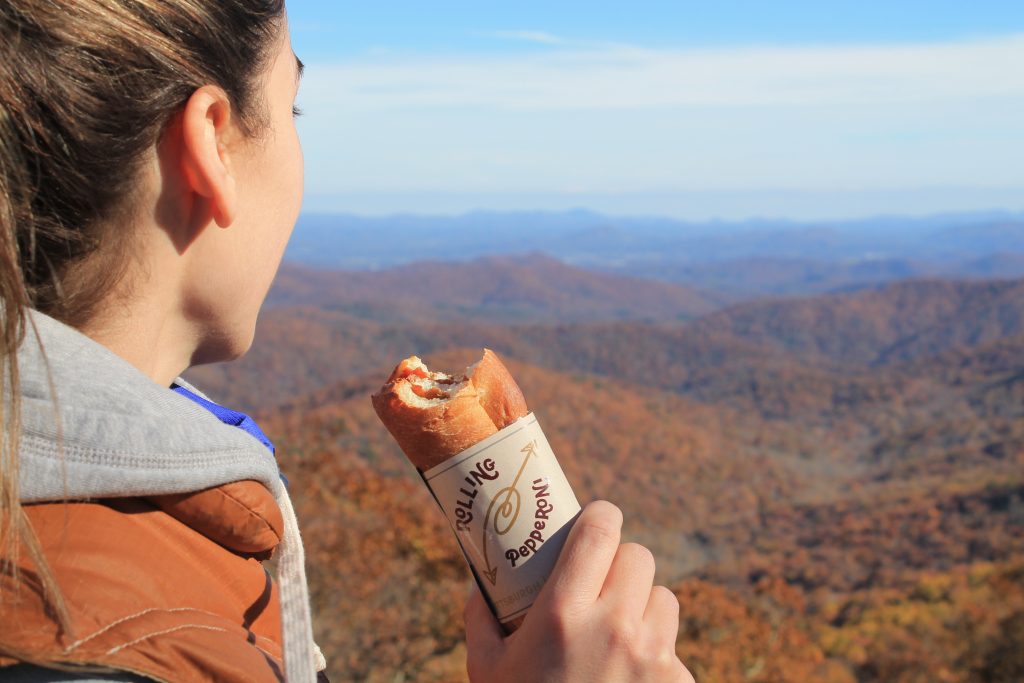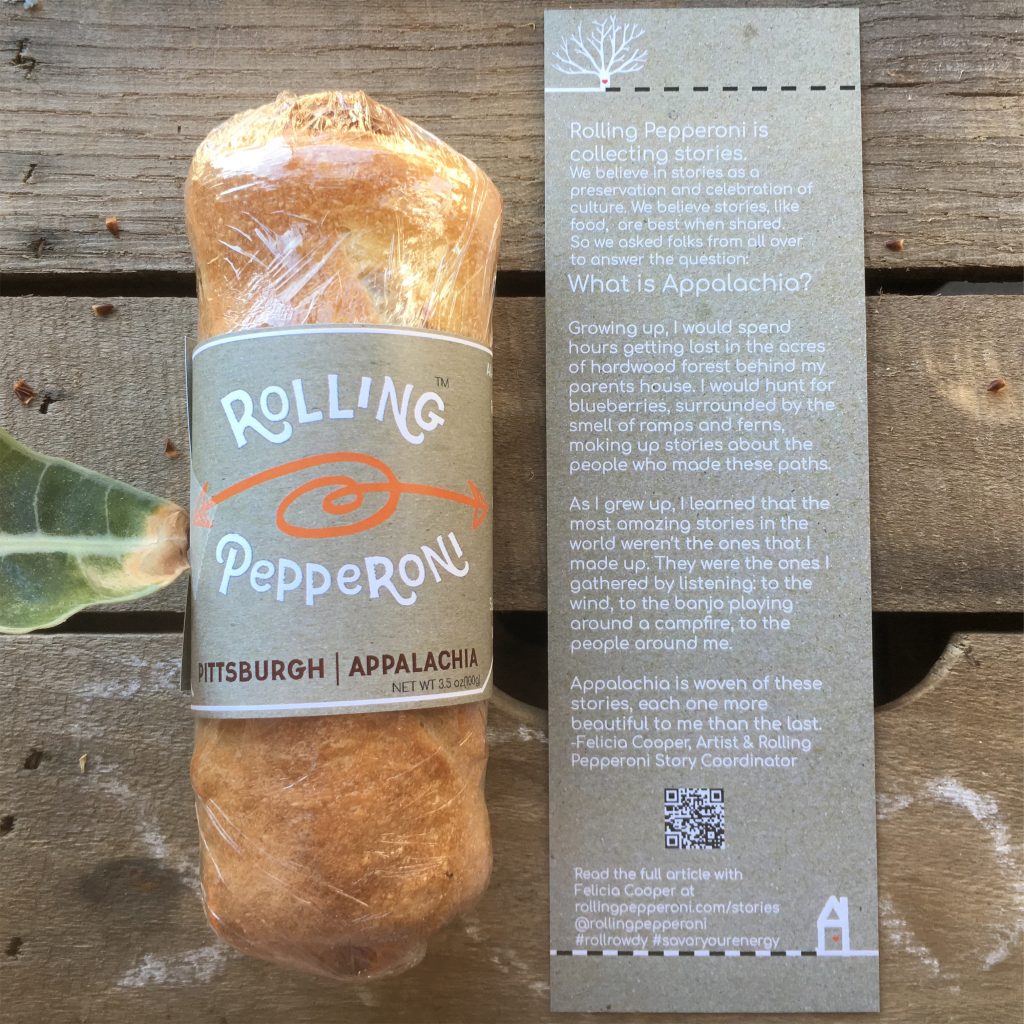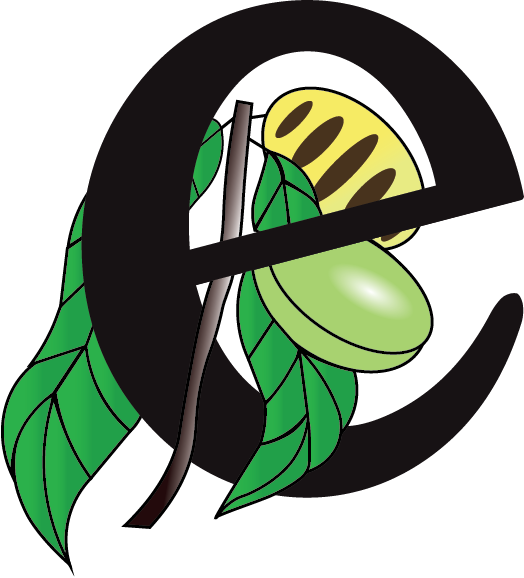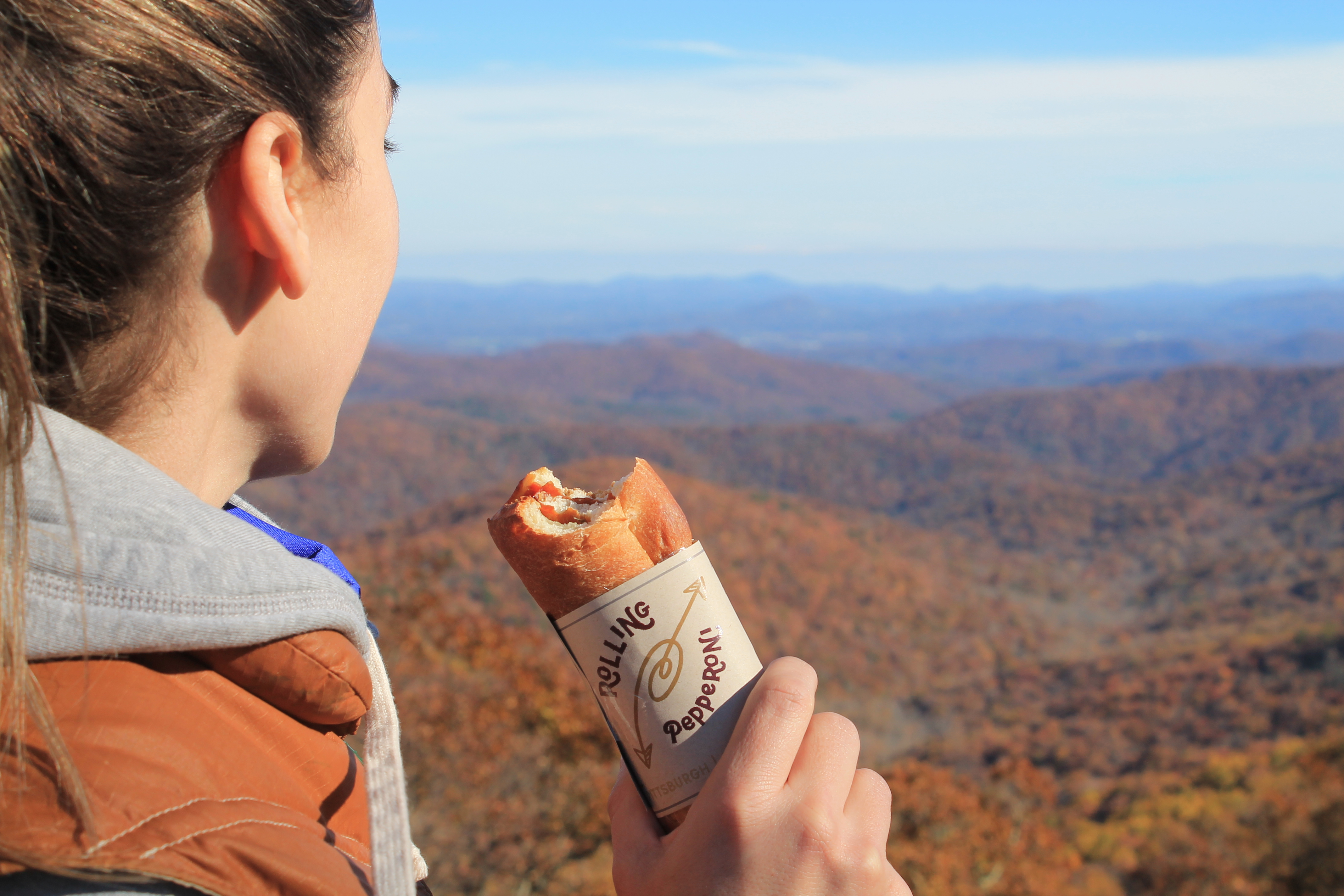
Few foods scream Appalachia as much as pepperoni rolls. The origin of the roll is attributed to Italian immigrants who moved to West Virginia in the 1900s to work in the coal mines. The pepperoni roll was a meal that would last in the miners’ lunch pails and fuel them through a day of hard work. This fusion food—which combines Italian ingredients with an American mentality of food being secondary to work—is today a symbol of West Virginia. In fact, there are few places outside of the state where pepperoni rolls can be found. Luckily for Pittsburgh, pepperoni rolls are appearing on shelves around the city all thanks to Elkins, West Virginia transplant Katt Schuler.

Schuler ended up in Pittsburgh after transferring to Point Park University to study business. Soon, Schuler felt herself thriving. Pittsburgh offered an environment that supported her creatively in a way she had never before experienced. Schuler began to question why this was and realized that Pittsburgh has resources that West Virginia, a largely rural state, does not. This disparity in resource distribution bothered Schuler. She began to ask herself, “How can we build community when people are leaving West Virginia?”
During her last year as an undergrad in 2015, Schuler launched her business Rolling Pepperoni. She used a church kitchen to pump out batches of pepperoni rolls that she sold wholesale. The motivation behind that business came in part from a professor who made her think about alternative business models beyond nonprofit and for-profit. So, Schuler made a socially driven mission the center of her business: “Bake and sell delicious, all-natural pepperoni rolls to fuel story sharing of the Appalachian culture that created the pepperoni roll.” Selling pepperoni rolls was the natural choice because it connected her to home. It also helped that practically nowhere in Pittsburgh sold pepperoni rolls.

With storytelling as an essential component of her mission, Schuler commissioned two coordinators to connect with Appalachians and tell their stories. “The more that we can let the region tell its story, the more people can claim their space,” she said.
Since Appalachia is a place with no set boundaries, the Appalachian culture is one of self-identification. There is a beauty in this because “It’s a culture that can make room,” Schuler described. This means that who is Appalachian is diverse and expansive, and so are their stories and experiences.
“The pepperoni rolls were a hit from the beginning,” Schuler said. When the stories—which are displayed on the wrappers—were included, the pepperoni rolls grew in popularity. That success allowed Rolling Pepperoni to expand its operation to include the opening of a storefront in Pittsburgh’s Lawrenceville neighborhood. The opening is still a few months away, but big plans are already in store. In addition to selling pepperoni rolls, the shop will sell a book of the stories gathered in the first year of the wrapper story project, along with other wares from Appalachian artists and creators.

Rolling Pepperoni and the wrapper stories are working to connect Appalachian cities to rural communities. “There needs to be more support to rural areas from cities in the Appalachian region,” Schuler said. “Pittsburgh gets a lot of funding, and it needs to be redistributed.” By fostering a sense of shared identity, Schuler hopes that cities, like Pittsburgh, will support rural communities.
If you can’t wait until the Rolling Pepperoni storefront is open, you can pick up a pepperoni roll by ordering online or by stumbling into one of the many shops that carry the rolls across West Virginia, Pennsylvania, and Maryland.

Annie Chester is a writer and co-founder of expatalachians. She writes about the environment and culture in Appalachia and abroad. She is currently a postgraduate student at the University of Edinburgh in Scotland.
Subscribe to The Patch, our newsletter, to stay up-to-date with new expatalachians articles and news from around Appalachia.


